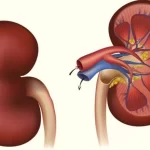Kidney Dialysis
Kidney dialysis: When both the kidneys aren’t functioning, therein case, the tactic of doing the kidney work by a man-made method is named kidney dialysis. A Kidney dialysis process that artificially excludes waste products and excess water that collects within the body thanks to kidney failure. Kidney dialysis is a life-saving technique for patients with complete renal failure or end-stage renal disorder or acute kidney injury.
The main functions of Kidney dialysis
- Purifying the blood by removing unnecessary excretory substances like creatinine, urea within the blood.
- Removing excess water stored within the body and keeping the fluids within the body in an appropriate quantity.
- Installing appropriate amounts of body bases like sodium, potassium, etc.
- Maintaining the right amount while reducing the surplus amount of acid accumulated within the body.
- Kidney dialysis cannot replace all functions of a conventional kidney. But like the assembly of erythropoietin hormones which is important for maintaining hemoglobin levels.
When is Kidney dialysis needed?
When the kidney’s efficiency decreases by 80–90%, then this condition is of end-stage renal disorder (ESKD). In this, waste products and fluids cannot get out of the body.
Toxins like – accumulating within the body within the sort of creatinine and other nitrogen waste products cause symptoms like nausea, vomiting, fatigue, swelling, and breathlessness.
These are collectively called uremia. At such times, general medical management becomes inadequate and therefore the patient must start dialysis. Kidney dialysis is an efficient alternative to kidney function.
Does renal dialysis make the Kidneys work again?
No. Even after Kidney dialysis in patients with chronic renal failure, the kidney doesn’t function again. In such patients, a dialysis is an option for kidney function, and to stay well, dialysis is important for normal treatment. But in patients with acute renal failure, dialysis is required for a brief period of your time. The kidneys of such patients start functioning fully again after a couple of days and later they are doing not need dialysis or taking medicines.
There are two sorts of kidney dialysis
Haemodialysis: In this sort of dialysis, the hemodialysis machine purifies the blood within the hemodialyzer (Dialyser) with the assistance of a special sort of alkaline fluid (Dialyser).
Peritoneal Dialysis: In this sort of dialysis, a special sort of catheter is inserted into the stomach and purified with the assistance of a special sort of alkaline fluid (P.D. Fluid), removing unnecessary substances accumulated within the body. this sort of dialysis doesn’t require a machine.
On which principle is blood purification in kidney dialysis based?
- In hemodialysis, the synthetic membrane of the synthetic kidney and therefore the peritoneum of the stomach in peritoneal dialysis act as a membrane (semipermeable membrane).
- Fine particles like membranes can emit small substances like water, alkalis, and unnecessary urea, creatinine. But large substances required for the body like blood particles can’t be removed.
- Despite both renal failures, the patient can live easily for long with the assistance of dialysis. In the process of dialysis, there’s a fluid of dialysis on one side of the membrane and therefore the blood of the body on the opposite side.
Consistent with the principle of osmosis and diffusion, unnecessary substances, and excess water from the blood effuse of the body into the dialysis fluid. The important function of correcting changes within the amount of sodium, potassium, and acid thanks to renal failure also occurs during this process.
Which patient hemodialysis and which patient should be treated with peritoneal?
- Both sorts of Renal dialysis are effective within the treatment of chronic renal failure.
- After giving information about both sorts of profit and loss to the patient. Various puzzles of health, distance from home to the hemodialysis unit, etc. Which sort of dialysis is to be decided.
- Hemodialysis is definitely and simply available at low cost in most places in India. For this reason, the amount of patients undergoing treatment with hemodialysis is more in India.






